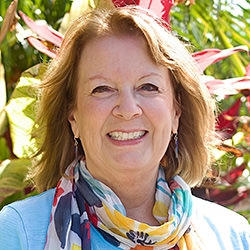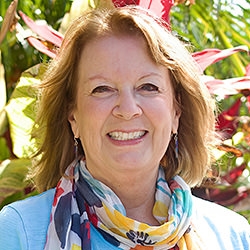

Search Results: awareness
-
Trainer tip: Be aware of times when you are judging others, demanding, making comparisons, or denying responsibility for your actions. Notice how these communication patterns affect your connection with other people.
-
Trainer Tip: Here are four Stages of Emotional Maturity, also known as Stages of Emotional Liberation. Be aware of what stage of emotional maturity you are in today. And, celebrate it.
-
Trainer Tip: When in a conflict that doesn’t seem to have a solution being aware of your needs, and then being creative and flexible about getting them met, can go a long way to coming up with creative solutions that work for everyone.
-
Join Jim and Jori Manske in a thought experiment exercise designed to help us become more aware of our conditioning, allowing us to make more conscious and connected choices in the face of conflict.
-
A fishbowl discussion on privilege, racism awareness, and empathy in NVC.
-
Use these cards in your practice group or NVC training to understand 4 different ways of responding to hard to hear messages. Become aware of the way you habitually respond to stimulus and develop skills to respond with empathy and express honestly.
-
Subtle boundary violations are more difficult to catch and name in the moment, than obvious boundary violations. Becoming more aware of these moments and finding the words to set a boundary are critical to supporting healthy relating long-term. Three categories of subtle boundary violations are (1.) lack of mutuality, (2.) voice tone and volume, and (3.) speaking for or about someone. Read on to learn more about all three.
-
In a "power with" consciousness you're aware of, and responsible for, your needs and values while considering and hearing others needs. Whereas regarding someone with earned authority, you trust her capacity and discernment is based on her experience and expertise. Read on for signs of when you are slipping into power under, power over, or power with, and how that fits with earned authority.
-
It is the first day of December and it seems to me as if 2023 went by with a flash. I have felt deep despair about the growing division between people and the devastating impact it has had on human beings, all life in fact, including our planet. And, I have also experienced many moments of joy and satisfaction this year.
-
Distinguishing between needs and strategies to meet needs is crucial for solving conflict. For example, the need for peace can be met through various strategies beyond solitude or gratitude. Similarly, sex is a strategy. Sexual expression is the need behind it, and can be met in various ways to meet that need without having sex itself. Such flexibility can foster creativity and deeper connection, enhancing relationships.
-
- Understand the dynamics of power struggles
- Explore practical strategies for navigating power imbalances
- Discover ways you can share power in various relationships
- Explore how NVC supports a move away from domination, into shared power
-
-
Ask the Trainer: Exploring how unconscious motivations influence the needs we identify and express.
-
Why is it so difficult to change our patterns even when we want to, even when we experience shame or despair about them? Arnina Kashtan offers some of the common pitfalls and concrete steps to overcome them in the future.
-
“Nonviolence” is not just a political tactic. It is a “soul force,” a courageous and compassionate stand in the face of what seems to us unjustly unequal, oppressive, and violent. It is the force of love meeting and transforming what appears to not be love.. It is the force of love meeting and transforming what appears to not be love. It is speaking and listening with courage, compassion, and an open heart and mind and rooted in our truth in a way that bridges understanding. And doing so without demand nor trying to convince -- all in the face of any anger, fear, oppression, inequality, violence or disagreement.
-
It's tempting to shut down a heated conversation when it’s painful and overwhelming. What can give us strength to stay open to hearing and being moved, to being open to new possibility, is recalling the “triad of conversation.” The triad is self and other and then awareness on the third side of the conversation. Here we can return to connection, to what we share and need in common, to a searching together for the way forward.
-
When a person of color (A.K.A. a person from the Global Majority, or GM) tells a marginalization story that triggers a defensive response from a white participant in a group, to foster awareness and healing, leaders can address the white person's distress with empathy, highlighting the common dynamic of prioritizing white pain. From there, leaders can offer GM participants opportunity to share their experience and make requests of the group.
-
- Focus on living from the inside out
- Bring a field of inner kindness to your inner distress
- Attend to your inner experience with compassion
- Cultivate an inner spaciousness of freedom
-
- Gain a deeper insight into the spiritual practice of NVC as taught by Robert Gonzales
- Enhance your emotional intelligence and self-compassion
- Learn compassionate self-talk techniques and cultivate more inner peace
- Approach change with a peaceful mindset, rather than anxiety and fear
-
- Discover how to translate NVC into your natural, authentic voice
- Embody your values through tone, presence, and nervous system attunement
- Learn the art of repair and returning to love when things go off track
- Finally, be able to drop the script and trust your internal compass in the moment!

Quick Links
Subscription Preferences
Stay In Touch!
Looking for ways to keep up with NVC Academy news, get special offers, free resources, or words of inspiration? Here are five ways to stay engaged:


















